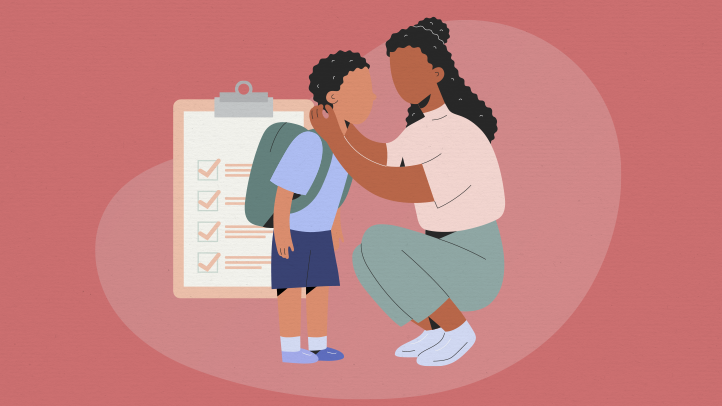Geena Davis Journey with ADHD Diagnosis as an Adult and Advocating for Proper Representation
Geena Davis is an Academy Award winning actress, producer, and advocate best known for her roles in popular films like Thelma & Louise, A League of Their Own, Beetlejuice, and Stuart Little. In addition to her prolific acting career, Davis is also an influential voice for gender equality in media as the founder of the Geena Davis Institute on Gender in Media.
In her personal life, Geena Davis has been open about living with ADHD (Attention Deficit Hyperactivity Disorder) and the challenges of being diagnosed as an adult. By sharing her experience, Davis hopes to use her platform to increase awareness and understanding of ADHD.
Geena Davis ADHD Symptoms and Diagnosis
Though ADHD is often considered a childhood condition, it frequently persists into adulthood. Estimates suggest 2.5% of adults live with ADHD.
In interviews, Geena Davis has shared that she exhibited symptoms of ADHD growing up including being disorganized, talkative, and frequently distracted. However, ADHD was not widely recognized or diagnosed in the 1960s.
As an adult, Davis continued experiencing ADHD symptoms such as forgetfulness, restlessness, and difficulty completing tasks. Yet it wasnt until she was in her mid-40s that she was formally evaluated and diagnosed with attention deficit disorder.
Davis has emphasized that ADHD symptoms manifest differently in girls and women, which contributes to underdiagnosis. While hyperactivity tends to be more overt in boys, inattentiveness often predominates in girls.
Learning about ADHD and finally getting a diagnosis in her 40s enabled Davis to better understand herself. She reflected that, It was a revelation and relief to learn there was a name for how Id always felt.
ADHD Treatment and Coping Strategies
Since her diagnosis, Geena Davis has shared that she takes medication to manage her ADHD symptoms. Stimulant medications like Adderall, Vyvanse, and Ritalin are commonly used to treat ADHD.
In addition to medication, Davis employs lifestyle and organizational strategies to cope with ADHD challenges. Keeping a detailed calendar, setting reminders, breaking large tasks into smaller steps, exercising regularly, and removing distractions are some of the tactics she uses.
Davis also notes the importance of understanding from family and friends. She explains that her loved ones now realize some of her behaviors like forgetfulness are due to ADHD rather than lack of caring.
Finding a proper balance of medication, lifestyle changes, social support, and self-compassion is key to effectively managing adult ADHD.
Geena Davis Advocacy for ADHD Awareness
Given her platform, Geena Davis has been able to share her personal ADHD journey to help debunk myths and increase public understanding of the condition.
Davis has partnered with the CHADD organization (Children and Adults with Attention Deficit/Hyperactivity Disorder) to promote ADHD advocacy and education. She aims to help both kids and adults get diagnosed appropriately and access evidence-based treatment.
In interviews Davis has emphasized the need to recognize ADHD symptoms in women and girls, rather than overlooking them. She notes the importance of validating that ADHD is a real disorder with a physical, neurological basis.
Geena Davis also sees improved ADHD representation in media and entertainment as an impactful way to shift attitudes. Showing diverse portrayals of characters living successfully with ADHD can help reduce stigma.
Perspective on ADHD as a Difference Rather Than Disability
While ADHD certainly presents challenges, Geena Davis has shared her belief that it should be viewed from a lens of neurodiversity. She hopes society can move away from solely medicalizing ADHD as a disability or disorder.
In a neurodiversity paradigm, ADHD is understood as an alternative wiring of the brain that confers both strengths and weaknesses. Davis has commented that many highly creative and successful cultural figures likely had undiagnosed ADHD.
Davis has noted common ADHD traits like hyperfocus, outside-the-box thinking, imagination, and high energy can be tremendous assets. She advocates that everyone has a different brain and way of thinking - not necessarily a disordered one.
From this perspective, the goal becomes identifying and building upon ADHD strengths while providing support and accommodation where needed. Geena Davis views align with a shifting cultural understanding of neurodiversity.
ADHD Symptoms and Impact in Women vs. Men
ADHD often presents differently in women compared to men, which contributes to underdiagnosis and misconceptions. Understanding how symptoms manifest across genders is important.
Common ADHD Symptoms in Women
While inattentiveness, impulsivity, and hyperactivity are main ADHD symptoms, research shows females tend to exhibit:
- Forgetfulness
- Difficulty concentrating
- Disorganization
- Restlessness
- Procrastination
- Low frustration tolerance
Women with ADHD commonly describe their thoughts as messy and scattered. Jumping between ideas or tasks is very common.
How Symptoms Differ From Men
In comparison to men with ADHD, women often show key differences:
- Less overt hyperactivity
- More internalized symptoms
- Learning disabilities less common
- Less impulsive behaviors
Additionally, girls seem to exhibit less disruptive behavior in school. They more frequently fly under the radar rather than get referred to the principals office.
Impact and Challenges for Women
ADHD presents challenges for women in areas like:
- Careers: Holding down jobs, organizational struggles, lateness
- Relationships: Communication issues, forgetting commitments
- Parenting: Tracking schedules, patience, household disorganization
- Self-esteem: Feeling inadequate due to symptoms
Women with ADHD also have higher rates of associated conditions like depression, anxiety, eating disorders, and substance abuse. Learning to manage ADHD is critical for well-being.
Why Symptoms Manifest Differently
Scientists are still investigating the exact reasons for gender differences in ADHD. But likely factors include:
- Impact of female sex hormones like estrogen
- Societal expectations for girl behavior
- Differences in brain development timelines
- Changes in dopamine receptor genes
Regardless of the cause, understanding how ADHD presents in women is key for diagnosis and treatment.
Seeking an ADHD Evaluation as an Adult
Adults like Geena Davis who exhibit ADHD symptoms can benefit from professional evaluation. Here is some guidance on pursuing assessment and diagnosis.
Recognizing Signs of ADHD
Many adults struggle with focus, organization, or restlessness at times. But those with ADHD experience chronic, impairing symptoms like:
- Extreme distractibility
- Difficulty completing tasks and following through
- Constant motion and fidgeting
- Excessive talking and interrupting
- Racing thoughts that wont slow down
- Impulsiveness and emotional reactivity
Such symptoms that date back to childhood but continue disrupting quality of life may indicate ADHD.
Seeking a Professional Evaluation
If chronic symptoms are interfering with work, health, and relationships, it is wise to seek evaluation. Psychologists, psychiatrists, and specialty clinics offer ADHD testing.
The assessment involves interview questions, computer tests, questionnaires, and discussion of history. Be thorough in describing past and current issues that may be linked to ADHD.
Evaluation can provide confirmation of an ADHD diagnosis. It may also reveal previously undiagnosed conditions like anxiety, depression, or learning disabilities.
Importance of Diagnosis as an Adult
Seeking a diagnosis is worthwhile because it:
- Validates concerns and provides answers
- Opens doors to effective treatment options
- Supports requesting accommodations at work or school
- Allows connection with ADHD resources and communities
Diagnosis removes uncertainty and paves the way for taking action to manage symptoms.
Adult ADHD Treatment Options
Various treatment options exist for managing ADHD in adulthood. Determining the right individualized plan involves trial and error.
Medication
Stimulant and non-stimulant medications help regulate ADHD symptoms:
- Stimulants: Adderall, Ritalin, Vyvanse - increase dopamine
- Non-stimulants: Strattera, Wellbutrin - regulate norepinephrine and dopamine
Medication can improve focus, reduce hyperactivity and impulsivity, and boost organization and working memory. Discuss options with a psychiatrist.
ADHD Coaching
Coaches specializing in ADHD provide support with:
- Organizing systems and routines
- Setting goals and plans
- Managing time and schedules
- Decision making strategies
Coaching helps motivate those with ADHD to implement practical strategies.remote coaching makes services accessible.
Therapy and Counseling
Options like individual, group, or family therapy support managing ADHD by:
- Identifying and adjusting thoughts/beliefs
- Treating co-occurring conditions like anxiety
- Building coping strategies and social skills
Counseling alongside other interventions promotes success.
ADHD-Focused Training
Seeking training in areas like:
- Time management
- Organization
- Study skills
- Communication abilities
Can teach specialized skills to overcome ADHD obstacles and build on strengths.
Lifestyle Adjustments
Steps like limiting distractions, adding structure, exercising, meditating, and improving sleep habits complement other treatments.
Tailored treatment combos empower those with ADHD to thrive.
Gaining Confidence in Managing Adult ADHD
Learning to successfully manage the challenges of adult ADHD takes time but is very possible. Having compassion for yourself and tapping into support systems builds confidence.
Seeking Understanding from Family and Friends
Opening up to close ones about your diagnosis facilitates support. Explain that symptoms are due to ADHD, not personal shortcomings.
Ask for help or accommodations with understanding. Most wish to help when they recognize your struggles are real.
Connecting with the ADHD Community
Knowing youre not alone is empowering. Local support groups and online forums provide community.
You can exchange tips on managing ADHD symptoms while getting encouragement.
Adjusting Expectations and Beating Perfectionism
Having ADHD means some traditional expectations and deadlines may be unrealistic for you. Allow yourself flexibility.
Let go of perfectionism. Celebrate progress in managing symptoms vs. focusing on flaws.
Exploring ADHD Benefits and Strengths
Those with ADHD often excel in creativity, problem solving, enthusiasm, and sensitivity. Recognize your talents.
Build confidence by taking on roles and projects drawing on your strengths. Reframe challenges as unique gifts.
Practicing Effective Self-Care
Make self-care like physical activity, nutritious eating, sleep, and fun hobbies a priority.
This empowers you to keep symptoms in check. Dont neglect your needs.
Patience, resilience, and hope enable those with ADHD to create a fulfilling life.
FAQs
When was Geena Davis diagnosed with ADHD?
Geena Davis shared that she was diagnosed with attention deficit disorder in her mid-40s after exhibiting symptoms since childhood.
How has Geena Davis treated her ADHD?
Davis takes medication to manage her ADHD symptoms. She also uses lifestyle strategies like reminders, minimizing distractions, and breaking down big tasks.
How has Geena Davis advocated for ADHD awareness?
She has partnered with ADHD organizations for advocacy and spoken publicly to share her diagnosis experience to educate others.
How does ADHD present differently in women versus men?
Women tend to show less hyperactivity but more disorganization, forgetfulness, and internalized symptoms compared to men.
What are some treatment options for managing adult ADHD?
Treatments can include medication, therapy, ADHD coaching, training programs, lifestyle changes, and community support.
Disclaimer: This article is for informational purposes only and does not constitute medical advice. Always consult with a healthcare professional before starting any new treatment regimen.
Related Coverage
Discover the potential link between chewing on objects and ADHD in children. Learn about oral fixation, the connection to sensory needs, and how to address this behavior with professional help and appropriate sensory outlets....
Pre-workout supplements may offer some benefits for ADHD but also have risks. Learn about using pre-workout supplements and other natural alternatives to manage ADHD symptoms....
A typical skinny margarita packs about 150 calories by using fresh citrus, zero-calorie sweeteners, and soda water instead of sugary mixes....
Certain hobbies like sports, arts, building, and crafts are ideal for allowing those with ADHD to channel excess energy and distraction into rewarding, focused activities....
If struggling with ADHD symptoms, getting properly evaluated is key. Here is guidance on finding a specialist, preparing for assessment, understanding diagnosis, and accessing treatment....
Adderall is a stimulant medication containing amphetamine salts used for treating ADHD and narcolepsy. Learn about proper dosage, risks, and safely weaning off....
Struggling with ADHD brain fog? Discover routines, nutrition hacks, and medication tips to clear the haze and boost focus....
If struggling with focus, impulsivity or hyperactivity, meet with a skilled ADHD psychiatrist in Philadelphia for evaluation, testing, medications, therapies and coping strategies....
Practical CBT for ADHD techniques improve focus, cut procrastination, and create lasting habits for everyday success....
Strattera and Qelbree are both nonstimulant medications newly approved for pediatric ADHD. Compare effectiveness, side effects, dosing, onset and age ranges to choose the best option....








